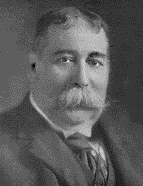

The decisive influence on his education came from the Superior Course of Letters, which brought together outstanding masters in humanistic studies of the liberal culture of the late 19th century. The author recognised this in Memórias [Memoirs] and in the article "O velho Curso Superior de Letras de Lisboa" [The old Super Letters Course in Lisbon]. His contact with the positivism promoted by Teófilo Braga was decisive to his formative years, as was his adherence to evolutionism. Oliveira Martins, Garret, Ramalho Ortigão, Eça de Queirós and other authors made up the influential intellectual group of the time. The Geração de 70 [Generation of 70] tended to act with a mission of political and social criticism against stagnation and Catholic tradition, playing an important role in political and social criticism in the context of the Portuguese monarchy crisis. Oliveira Lima shared these concerns and was made aware of issues of nationality and national identity. Within this framework of references, the alignment with idealism and the exploration of affectivity and mental life were prevalent. The advancement of republicanism and socialist conceptions marked the contesting political positions of the monarchist and Catholic political camp at the time of his youth.
His specific training in history was based on reading the German historians, especially Ranke and Mommsen. Nevertheless, he considered Oliveira Martins to be his greatest teacher, with whom he had been acquainted since his student years. Later, as a secretary of the legation in Lisbon and a correspondent for the Jornal do Brasil , he used to consult him in search of political information. This historian and his História de Portugal [History of Portugal] had a strong influence on his conception of the profession as a conciliation between science and art. Style plays an important role in this historiographical conception, requiring the historian to be correct and clear, and the right vocabulary and arrangement of arguments to ensure that the historical work fulfils the categories of a fictional work, i.e. coherence, credibility, cadence, suggestion and sonority. Intuition would be the cognitive quality of the historian that was necessary to establish causal relationships and influences in his task of reconstructing the past as a resurrection. Social groups are represented in the theatre of history by heroes to be worked on as subject-characters, representative of certain forces at work at a given historical moment, in order to shape the symbols needed to understand and remember the past. The psychological approach to heroes that Oliveira Lima adopted was strongly inspired by Oliveira Martins and his portrait method. He combined the action of chance with a psychological approach to present the plot of history as a theatre of great individualities.
This work is financed by national funds through FCT - Foundation for Science and Technology, I.P, in the scope of the projects UIDB/04311/2020 and UIDP/04311/2020.
